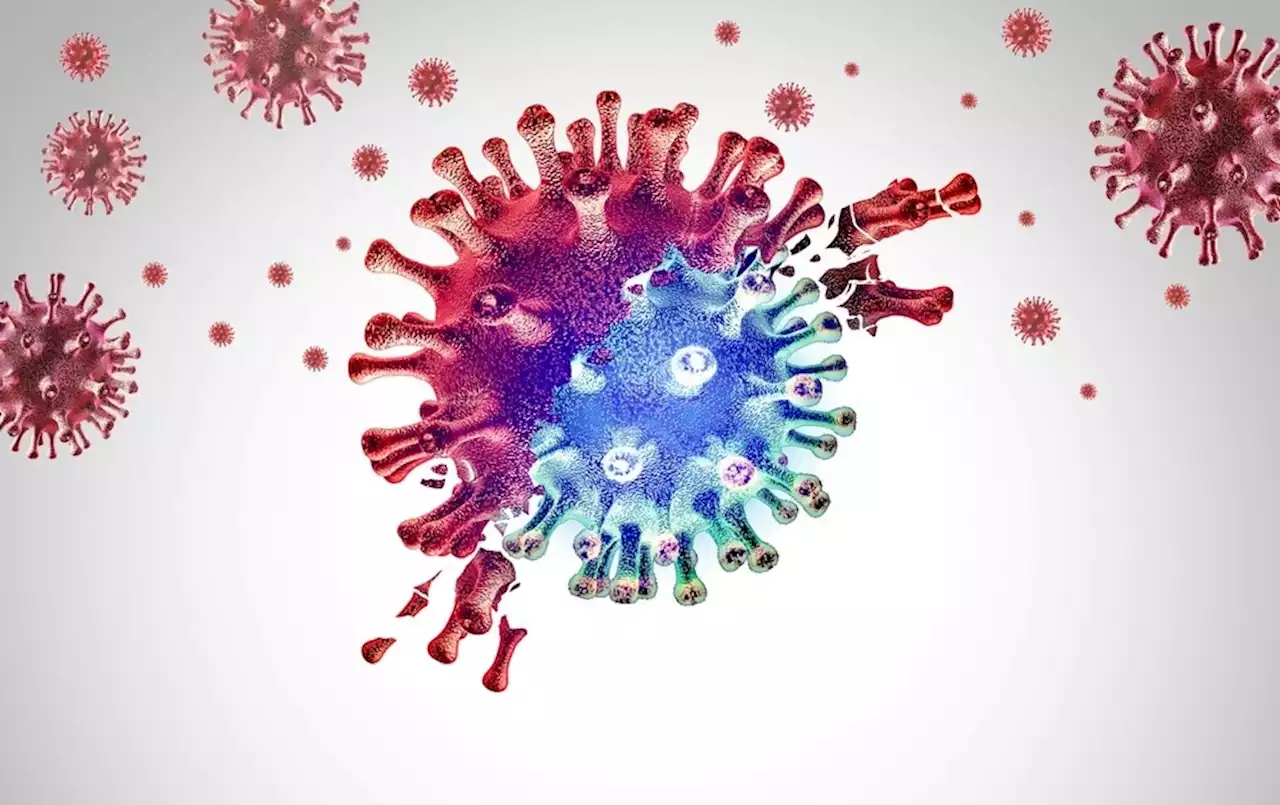Researchers report ‘hybrid immune damping’ following SARS-CoV-2 Omicron infection Coronavirus Disease COVID Omicron NHSBartsHealth imperialcollege
By Shanet Susan AlexJul 25 2022Reviewed by Benedette Cuffari, M.Sc. A recent Science journal study explores the impact of differential immune imprinting patterns in individuals vaccinated against the coronavirus disease 2019 with a history of prior infection with a variant of the severe acute respiratory syndrome coronavirus 2 during the Omicron wave.
Previous evidence has shown that the Omicron variant and its sublineages have reduced the efficacy of mitigation strategies to contain the COVID-19 pandemic. Current COVID-19 vaccines remain protective against severe illness and mortality; however, they are limited in their ability to prevent breakthrough infections.
T-cell reactions against the naturally processed antigen and peptide pools were assessed, in addition to memory B-cell frequency, S subunit 1 receptor binding domain and full S binding, and live virus nAb effectiveness. Related StoriesComparatively, HCWs who were previously infected with Wuhan Hu-1 and Alpha strains exhibited more potent nAb responses against the Wuhan Hu-1, Alpha, and Delta variants. Notably, a history of prior SARS-CoV-2 infection did not improve cross-reactive S1 RBD IgG titers against the Omicron variant.
Omicron infection did not produce the same extent of cross-reactive antibody immunity to the Omicron variant. Furthermore, infection-naïve triple vaccinated HCWs exhibited rapid nAb waning following their third dose against the Omicron variant, as demonstrated by the lack of nAbs produced 14 weeks after their third dose against the Omicron variant.
Omicron infection did not produce cross-reactive T-cell responses against the Omicron variant; however, these responses were observed against other SARS-CoV-2 variants. However, prior infection with the Wuhan H-1 and Alpha variants in unvaccinated individuals did not produce any cross-reactive S1 RBD antibodies against the Omicron variant.
Danmark Seneste Nyt, Danmark Overskrifter
Similar News:Du kan også læse nyheder, der ligner denne, som vi har indsamlet fra andre nyhedskilder.
 Scientists identify papain-like protease inhibitor against COVID-19In a new study, researchers identified a papain-like protease inhibitor for the treatment of severe acute respiratory syndrome coronavirus 2 (SARS-CoV-2) infections.
Scientists identify papain-like protease inhibitor against COVID-19In a new study, researchers identified a papain-like protease inhibitor for the treatment of severe acute respiratory syndrome coronavirus 2 (SARS-CoV-2) infections.
Læs mere »
 Quarantine guidance for Omicron infectionThe CDC provides updated guidelines on how the U.S. population can protect themselves and others from the SARS-CoV-2 Omicron variant.
Quarantine guidance for Omicron infectionThe CDC provides updated guidelines on how the U.S. population can protect themselves and others from the SARS-CoV-2 Omicron variant.
Læs mere »
 How SARS-CoV-2 Omicron spike mutations contribute to increased infectivityHow SARS-CoV-2 Omicron spike mutations contribute to increased infectivity SARSCoV2 Omicron SpikeProtein COVID neutralization BA1 BA2 variant evolution cellhostmicrobe uni_ulm TheCrick
How SARS-CoV-2 Omicron spike mutations contribute to increased infectivityHow SARS-CoV-2 Omicron spike mutations contribute to increased infectivity SARSCoV2 Omicron SpikeProtein COVID neutralization BA1 BA2 variant evolution cellhostmicrobe uni_ulm TheCrick
Læs mere »
 SARS-CoV-2 oral vaccine candidate found to induce neutralizing mucosal IgASARS-CoV-2 oral vaccine candidate found to induce neutralizing mucosal IgA medrxivpreprint vaxart COVID19 Vaccine OralVaccine Trial SARSCoV2
SARS-CoV-2 oral vaccine candidate found to induce neutralizing mucosal IgASARS-CoV-2 oral vaccine candidate found to induce neutralizing mucosal IgA medrxivpreprint vaxart COVID19 Vaccine OralVaccine Trial SARSCoV2
Læs mere »
 Scientists identify how the coronavirus spike protein causes heart damageNew research has uncovered 'direct evidence that the SARS-CoV-2 spike protein is toxic to heart muscle cells,' according to its lead author.
Scientists identify how the coronavirus spike protein causes heart damageNew research has uncovered 'direct evidence that the SARS-CoV-2 spike protein is toxic to heart muscle cells,' according to its lead author.
Læs mere »
